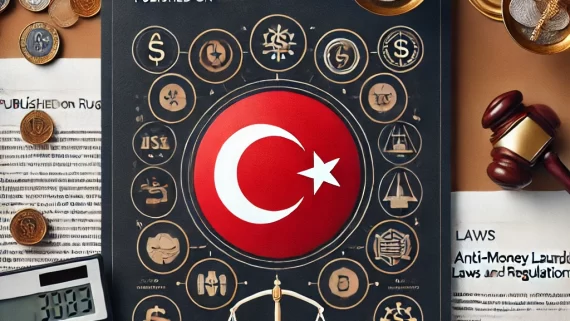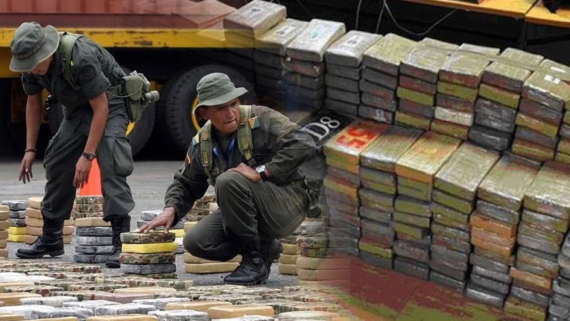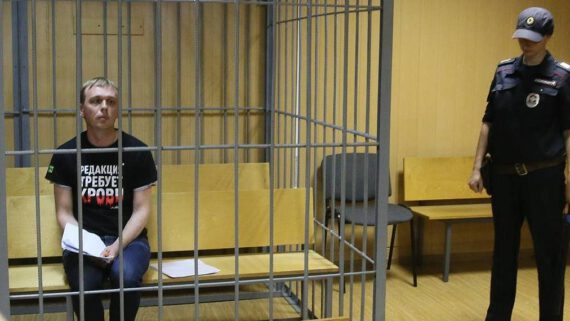Gambling, gaming, and betting activities in Turkey are strictly regulated under a state-controlled system. All legal gambling operations—such as the national lottery (Milli Piyango) and sports betting through IDDAA – are licensed and operated under government supervision. The legal framework is supported by laws such as Law No. 7258, the Turkish Penal Code, and Law No. 5651, which empower authorities to block illegal websites and monitor financial transactions related to unlawful gambling. Even individual participants can face fines, reflecting a zero-tolerance approach to unauthorized gambling. In parallel, the growing popularity of digital gaming has introduced legal complexities—particularly around loot boxes, in-game betting, and virtual currencies. These areas remain largely unregulated but are drawing increased attention from lawmakers and regulators. Bıçak provides comprehensive legal services in this complex regulatory environment, including licensing procedures for lawful gaming operations, compliance audits, risk assessments, and legal representation in administrative or criminal proceedings. The firm advises both domestic and international clients on navigating Turkey’s stringent gambling and gaming laws, helping businesses remain compliant while identifying lawful opportunities within the sector.
Gambling, Gaming and Betting in Turkey
Provisions of Turkish gambling law are only applicable, if there is a gamble in the first place. According to Turkish law, gambling only occurs when a fee is required for the acquisition of the chance of winning a game, while the decision about winning the game depends wholly or mainly on chance. The decision about winning a game is presumed to depend on chance, if the decision is based on the uncertain occurrence or outcome of future events.
Gambling is defined as a game undertaken with the aim of earning money, where the profit and loss depends upon chance (TCC Art. 228/6). Gambling may be categorised as land-based and online gambling.
Differences between Gambling and Betting
It is seen that the definition of gambling has been made to cover all types of games and sports in which profit and loss depends on luck. On the other hand, “betting”, which is not defined explicitly in any legislation, is a system that profits third parties based on their predictions of an organization’s -not predetermined but possible- results.
One might say that in betting, the person placing a stake has a better idea of what might happen than in gambling. In other words, gambling relies on pure luck while betting can benefit from research. For example, if you bet on the horses, you can study the past performances of the horses, jockeys, and trainers. You can also find out what kind of terrain each horse prefers. Some horses, for example, prefer soft terrain. Therefore, if it has been raining, it is more likely to do well. With gambling, on the other hand, you have no idea what the outcome will be. In a casino, for example, you don’t know what number will come up next on the roulette table.
Objectives of Gambling Provisions
In general, the objective of the Turkish Criminal Code is to protect individual rights and freedoms, public order and security, the rule of law, peace in the community, public health and the environment and to prevent the commission of offences. In order to achieve this objective criminal responsibility, specific criminal offences, penalties and security measures are regulated under the Turkish Criminal Code.
More specifically, consumer protection, in particular the prevention of gambling addiction and protection of minors and other vulnerable persons, the channelling of players towards the regulated market, the guarantee of an orderly and fair gambling offering, combatting of fraud and other gambling-related crimes as well as the protection of the integrity of sports are the statutory objectives of Turkey gambling regulations.
Constitutional Provision
Article 58 of the Constitution of the Republic of Turkey regulates that the government shall take necessary measures to protect teenagers from gambling and similar bad habits. As a result, gambling and betting are considered a field that is principally prohibited under Turkish legislation and can only be carried out with government control.
Providing a place or the means for any form of gambling (Operators)
Gambling is regulated within the scope of crimes against the community and public morality in the Turkish Criminal Code(hereafter TCC). Providing an environment (place, location) or the means for any form of gambling (whether land-based or online) is prohibited by the Article 228 of TCC. Accordingly, any person who provides an environment or the means for gambling is sentenced to a penalty of imprisonment for a term of one year to three years and a judicial fine of not less than two hundred days. The penalty to be imposed is increased by one fold where an environment or means is provided for children in order to gamble. In the event that the act of providing environment or the means for gambling is committed using electronic data processing systems, the offender is sentenced to a penalty of imprisonment for a term of three to five years and a judicial fine of a thousand to ten thousand days.(15.08.2017) Where the offence is committed in the course of the activities of a criminal organization, the penalty to be imposed is increased by one half. (15.08.2017) Legal entities are subject to security measures for involvement in gambling offences.
In addition, the Article 228 of the TCC, roulette, pinball and slot and other similar gaming machines are classified as special forms of gambling and are banned under the Law Regarding Roulette, Pinball and Gaming Machines.
Individual Gamblers (Customers)
Article 34 of the Petty Offenses Law (Kabahatler Kanunu) provides that any type of gambling is forbidden and any person who gambles is subject to an administrative fine of 1.000 YTL, and the gambling proceeds will be confiscated by the relevant authorities. There is no difference between online gambling and land gambling under the Petty Offenses Law.
Gaming
Gaming (Şans Oyunları) is governed by the Decree No. 320 regarding National Lottery Administration and Regulation on Supervising Games of Chance. Gaming is defined as games played for a cash prize (such as lottery, numeric games and instant-win games). Three categories of gaming may be identified as;
Lottery (Piyango)
This is a game of chance played by numbered raffle tickets which represent a chance to win a pre-determined cash prize on a given drawing date. While an application fee has been paid to obtain a permission from the National Lottery Administration (“Administration”) by the virtue of practice, this fee is now regulated under the legal regulation in Turkey (The Official Gazette on 09.11.2022). As per the amendment made to Article 41 of the Decree-Law, real persons and legal entities who apply Administration to organize any type of non-cash goods lotteries in Turkey is required to pay an application fee of TRY 2.000,00 as of 09.11.2022. The application fee shall be adjusted annually in accordance with the revaluation rate determined and announced under the Tax Procedure Law for the preceding year, starting from the beginning of each calendar year.
Furthermore, it is specified that 15% of the total market value of bonuses, prizes, or similar benefits offered in lotteries, which have been granted permission by the Administration following examination of the application, may be subject to a separate charge as a permit fee. Moreover, if the bonuses, prizes, or similar benefits promised in the lotteries are imported from abroad or produced by other real persons or legal entities, a permit fee of 30% of the total market value shall be charged (The Official Gazette on 09.11.2022).
Numeric games (Sayısal Oyunlar)
These are games of chance played by guessing at the outcome of a draw of certain number of shapes, letters or numerals to win a cash prize.
Instant- win games or sweepstakes (Hemen-Kazan):
This is a game of chance played by scratching off tickets to uncover certain number of identical numbers, amounts, shapes, designs (or alike) to win a cash prize.
Betting
Betting (Müşterek Bahis) is the action of risking money, possessions, time, or something else on the outcome of something, such as a game or race. Individuals involved in betting risk losing something, depending on the outcome of, for example, a horse race. However, they also have a chance of winning something. The most common types of betting may be stated as;
Sports betting (Müşterek Bahis): The Sports Betting Regulation defines sports betting a game played by betting on the outcome of a local or international sports event with the possibility of winning a pre-determined percentage of the revenue (hasılat) raised as the prize.
Horse race betting (Müşterek Bahis): The Horse Race Betting Regulation defines horse race betting as a game of chance and skill played by betting on the outcome of any kind of local or international race, competition, sports event or certain event or position with the possibility of winning a pre-determined quantity, amount, rate or multiple of the revenue (kazanç) raised as the prize.
New penal provisions (The Official Gazette on 09.11.2022)
1- Without relying on the authority or permission granted by the legislation or authorized institutions and organizations:
a- Those who organize or provide opportunities to play any kinds of goods lottery, games of chance, or joint betting or similar games is sentenced to imprisonment from three to five years and a judicial fine up to ten thousand days,
b- Those who provide access to all kinds of goods lottery, games of chance, games of chance, joint betting and similar games played abroad via the internet or by other means, enabling them to be played in Turkey, is sentenced to imprisonment from four to six years and a judicial fine up to five thousand days,
c- Those who mediate the money transfer in connection with all kinds of goods lottery, games of chance and joint betting or similar games, is sentenced to imprisonment from three to five years and a judicial fine of up to five thousand days,
d- Those who encourage people to play all kinds of goods lottery, games of chance, joint betting or similar games through advertising and other means are sentenced to imprisonment from one year to three years and a judicial fine of up to three thousand days,
e- Those who play all kinds of goods lottery, games of chance and joint betting or similar games organized by third parties in physical or electronic environments, is sentenced to an administrative fine ranging from TRY 5.000,00 to TRY 20.000,00.
2- Within the scope of the organization of all kinds of non-cash goods lotteries, joint betting and similar games in physical or electronic environment; individuals who fail to conduct the draws, announce the results of the draws, or fulfill their obligations despite obtaining the necessary permission is punished with imprisonment ranging from two months to two years and a judicial fine of up to three thousand days.
The workplaces in which the aforementioned offenses are committed is sealed and closed for a maximum of three months without prior notice by the highest local administrative authority. The licenses of workplaces that hold an operating license is cancelled by the authorized administration within five working days upon notification by the highest local administrative authority.
It is also important to note that in the event that the crimes specified in Article 52 of the Decree-Law are committed, all assets acquired through the crime will be subject to confiscation in accordance with the provisions on confiscation of property and earnings set forth in the Turkish Penal Code No. 5237 during the criminal investigation.
Finally, the measures related to (i) seizure of immovables, rights and receivables, (ii) detection, interception and recording of communication, (iii) assignment of a secret investigator and (iv) monitoring by technical means, as set out in the Criminal Procedure Law No. 5271, as set out in subparagraphs (a), (b), (c) and (d) and paragraph 2 above, would be applied.
As it seen, the Law has brought about significant changes in the national lottery legislation and has established more detailed conditions for organizing lotteries and draws. Furthermore, the scope of criminal liability has been expanded through the much more comprehensive penal provisions compared to the previous version of the text.
Betting and Games of Chance in Football and Other Sports Competitions
The sports betting is defined as a game played by betting on the outcome of a local or international sports event with the possibility of winning a pre-determined percentage of the revenue (hasılat) raised as the prize.
Article 5 of the Law numbered 7258, the Regulation of Joint Betting and Chance Games in Football and Other Sports Competitions, regulates that those who play fixed-odds betting and joint-betting, or games of chance based on sports events without a license, or who provide environment and opportunity for them to be played, is subject to criminal penalties. Accordingly, without being authorized by law;
Those who play fixed odds and common betting or chance games based on sports events, or who provide a place or opportunity to be played, are sentenced to imprisonment from three years to five years and a judicial fine up to ten thousand days.
Persons who enable fixed odds or joint betting or games of chance based on sports competitions played abroad to be played from Turkey through internet or other means, are sentenced to imprisonment from four to six years.
Persons who mediate money transfer in connection with fixed odds or joint betting or games of chance based on sports events are sentenced to imprisonment from three to five years and a judicial fine up to five thousand days.
Those who encourage people to advertise or otherwise play fixed odds or joint betting or games of chance based on sports competitions are sentenced to imprisonment from one year to three years and a judicial fine up to three thousand days.
Those who play fixed odds or joint betting or games of chance based on sports competitions are punished with an administrative fine from five thousand to twenty thousand lira by the highest local authority.
In connection with the above-mentioned offenses, the goods allocated to or used in the playing of fixed odds or joint betting or chance games based on sports competitions or the subject of the offense and any property value put forward for playing these games or obtained by playing these games are confiscated.
Due to the above-mentioned crimes, security measures specific to them are imposed on legal persons.
The workplaces where the crimes stated above committed are sealed and closed for three months by the highest local administrative authority without warning. The licenses of workplaces holding business and working licenses are canceled within five working days by the authority authorized to issue the license upon the notification of the highest local administrative authority.
Technical measures to protect consumers from unlicensed operators
Under Law numbered 5651, Law Regarding Internet Broadcasting and Combatting Criminal Offences Committed via Internet Broadcasting, the following forms of technical measures are available to protect consumers
Access blocking via domain name, IP address, content (URL) blocking and other similar methods.
Removal of content (URL) from servers by content providers and online and electronic platform providers.
Blocking access to a website.
Anti-money laundering legislation
The Law on Prevention of Laundering Proceeds of Crime (Law No. 5549) (AML Law), effective since 18 October 2006, and its secondary legislation define gambling as a predicate offence given that its imprisonment term exceeds the six-month threshold of AML Law.
Gambling debts
Gambling debts are not enforceable in Turkey since they are considered “debts of honour”. However, once gaming debts are settled, they are not reclaimable.
Current Situation
The regulated forms of gaming and betting (that is, games of chance, sports betting and horse race betting) are operated directly by the specific Turkish public operator affiliated with the Turkish government agency regulating the activity. Currently in Turkey, license for the gaming and betting has been given to Turkey Wealth Fund for 49 years. Following that, Turkey Wealth Fund authorized the Sisal Şans for 10 years in terms of organizing games of chance and issuing license to dealers; and authorized the Turkey Jockey Club for 49 years in terms of organizing horse racing betting games and issuing license to dealers. Also, the only authorized institution to organize sports betting games and to issue license to dealers is Spor Toto Organization. Operational revenues are collected by the Turkey Wealth Fund.
Financial Payment Mechanisms
All forms of payment is used in gambling, including cash, bank transfer of funds debit cards and a number of electronic payment mechanisms. There are also some systems for the purchase of a ‘code’ or token using an electronic money issuer that can then be redeemed for the purposes of gambling. However, there is a ban on the use of credit cards for most forms of gambling (except the purchase of lottery tickets).
In a gambling context, blockchain technology is most visible to Turkish players in the form of cryptocurrencies and there are gambling companies who offer Turkish players the use of cryptocurrencies on their sites. There is, however, no gambling-specific regulation regarding blockchain and cryptocurrencies in Turkey.
Representation of companies and operators
Bıçak is a Turkish law firm which specializes in the representation of companies and operators on all issues of gambling, gaming and betting law. In Turkey, there are mix set of rules for gambling, gaming and betting transactions.
We believe that Bıçak’s global gambling, gaming and betting practice provides our clients with a unique offering. Leveraging our thorough understanding of the sector, we handle our clients’ most important and complex corporate, mergers and acquisitions, and real estate transactions, litigation and disputes work, regulatory and compliance matters and other legal challenges.
Compliance issues
We advise gambling, gaming and betting clients on a range of compliance issues relating to betting and gaming operations, including issues arising under the FCPA, the UK Bribery Act and other anti-corruption laws, and under antitrust/competition, consumer protection, VAT and gaming tax, anti-money-laundering and data privacy laws. The firm acts as special counsel to compliance committees, providing proactive advice and support. We also represent betting and gaming clients in connection with governmental and regulatory inquiries, investigations and litigation in Turkish jurisdiction.
 English
English Türkçe
Türkçe Français
Français Deutsch
Deutsch










Comments
No comments yet.